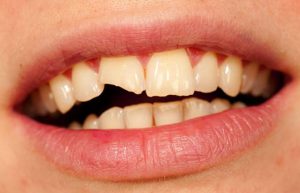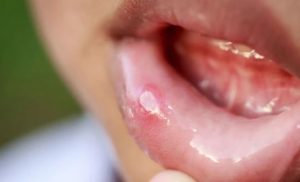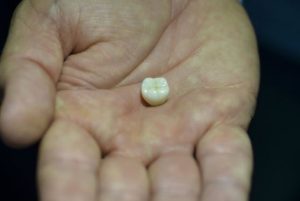Having a dental emergency is never a pleasant experience. Some dental emergencies can be very painful. Others are more uncomfortable, or even embarrassing in nature. Regardless of the nature of your emergency, it's important to act quickly to see your dentist as soon as possible. It's never a wise idea to ignore a true dental emergency, as it can lead to more serious complications. Let's take a look at a few of the most common dental emergencies to help you decide what you should do in each case:
Infected tooth
Teeth become infected when the cavity bugs reach the tooth nerve. This causes a severe, lingering, throbbing pain that usually lasts for hours at a time. Unfortunately, you can not save the tooth with a simple filling. You're going to require a root canal treatment to save the infected tooth. Otherwise, you have to remove the tooth to eliminate the pain and resolve the infection.
Tooth eruption
A serious toothache can also be the result of an erupting tooth. This is common in children when their baby teeth or adult teeth start to erupt. Manage the pain using Orajel or take a painkiller if needed. Sometimes this pain is the result of an erupting wisdom tooth. You may have to remove the wisdom tooth if there is no space for it. This usually happens during your teenage years or when you're in your 20s and 30s. Consult with your dentist to find the source of your toothache to resolve the pain. Click here to learn more about wisdom teeth and when you should have them removed.
Broken tooth or dental restoration
Some emergencies are the result of a broken tooth or failing dental restoration. If there's little to no pain, then you may be able to restore the broken tooth with a dental filling or crown. However, if your broken tooth is painful, then you most likely need a root canal treatment. See your dentist to take an X-ray and decide what's the best way to restore your broken tooth.

You can fix most broken teeth with a filling or a crown, as long as there's no infection involved
Dislodged tooth
Although rare, sometimes the entire tooth gets knocked out of the mouth following a serious accident. We're talking about the whole tooth here, along with the tooth crown and root and everything. Luckily, there is a way to salvage knocked-out teeth, but you must act fast. Contact your dentist and let them know what happened. Keep the tooth in milk or salt water until you reach your dentist to protect it against drying up. If your tooth is salvageable, your dentist will replace the tooth back in its original socket. They will splint the tooth with adjacent teeth to stabilize it. Of course, this technique doesn't always work. If your dentist can not save the dislodged tooth then you should consider replacing the tooth with a dental implant.

Keep your dislodged tooth in milk or salt water until you are able to see your dentist
Gum lesions
Gum lesions include cuts, bruises, cheek biting, and aphthous ulcers (canker sores) to name a few. You should never simply write off a lesion in your mouth, as there's always a chance it could be something more serious. Monitor the suspicious lesion for a week or two to see if it goes away by itself. If a lesion persists beyond two weeks, you should have it examined by your dentist. Your dentist may be able to explain what the lesion is or they may refer you for a biopsy if necessary. Consult with your dentist to find the source of your discomfort and seek treatment as soon as possible.

Canker sores last about a week or two, are painful and annoying, and resolve by themselves
Crown falls off from your tooth
It's not uncommon for a crown to fall off from your tooth. The more crowns you have in your mouth, the more the chances of having to deal with this emergency. If this happens, keep your crown in a safe place, preferably a ziplock bag, and call your dentist right away. If the crown and the tooth are in good shape, your dentist will simply glue the crown back in its place. However, if your crown is broken, you will require a new crown. The worst-case scenario is when the tooth breaks inside the crown. In these cases, you may be able to save the tooth with a new crown or a root canal. However, in many scenarios, you are going to lose the tooth and will require a dental implant instead. Regardless, you must act very fast to salvage your crown. If you wait too long to see your dentist, your teeth start to shift and the crown will no longer fit in its place.

When a crown falls off the tooth it needs to be glued back in as soon as possible to prevent other teeth from shifting
How to fix your dental emergency?
Most dental emergencies require immediate attention. Delaying treatment only makes it more complicated and costly to fix your problem. For example, a broken filling may be fixed with a new filling or a crown. However, if you wait too long, the tooth becomes infected and you will now require a root canal instead. Wait even longer and you will lose the tooth and require a dental implant. Don't ignore your dental emergencies. Contact your dentist right away and get your teeth and gums back to a healthy, happy state!

In case of a dental emergency, you should contact your dentist as soon as possible

0 Comments